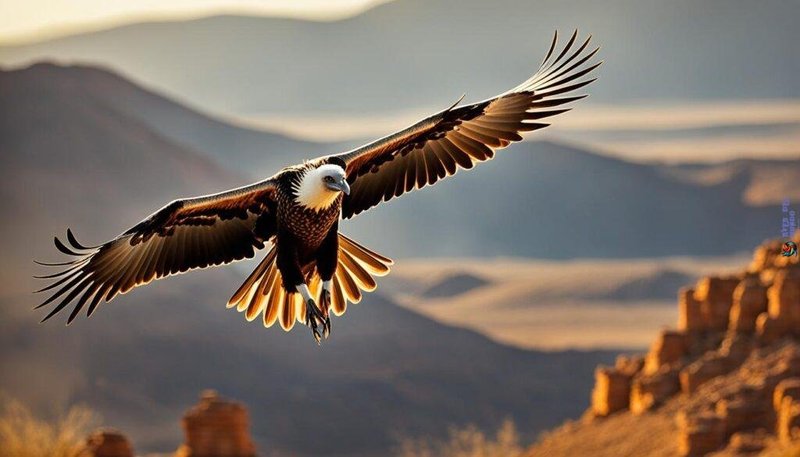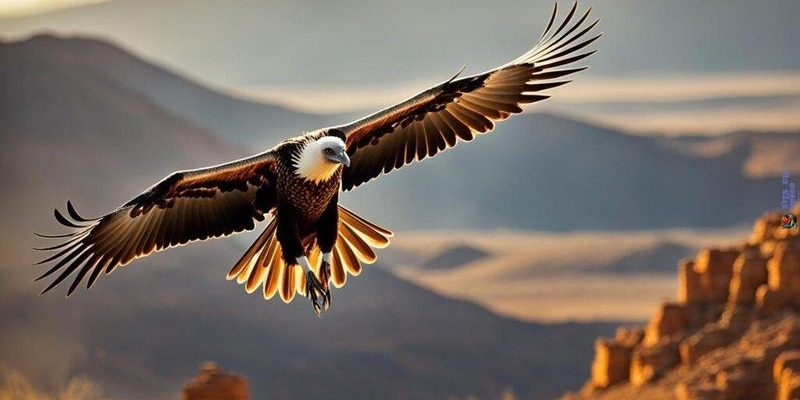
Vultures may not have the most glamorous image, but they carry profound meanings in various cultures. From being symbols of protection to representing the cycle of life, these birds have woven themselves into the fabric of human storytelling. So, let’s dive into how vultures shape our understanding of life, death, and everything in between.
Vultures as Symbols of Purification
In many cultures, vultures are seen as nature’s cleaners. Their primary role is to devour the remains of dead animals, which prevents the spread of disease. Think of them as the unsung heroes ensuring our environment stays healthy. In places like India, vultures play a crucial role in the Parsi funerary tradition. When someone dies, the body is placed on a “Tower of Silence,” where vultures quickly consume the remains. This practice reflects the Parsi belief in returning the body to nature, aligning with their spiritual views about life and death.
Moreover, in some African cultures, vultures are revered as protectors and guardians. For instance, the Maasai people see them as spiritual guides who help souls transition after death. This perspective highlights the connection between vultures and the purification of the earth. Rather than viewing them as ominous creatures, these cultures appreciate their vital contribution to the natural order.
Vultures in Mythology and Legends
Vultures don’t just exist in the real world; they often take flight in the realm of mythology. In ancient Egyptian culture, the vulture was associated with the goddess Ma’at, representing truth, balance, and order. Ma’at is depicted wearing a vulture headdress, symbolizing her role in maintaining harmony. It’s fascinating how these birds became emblematic of justice, guiding the souls of the dead through the afterlife.
Similarly, in Native American folklore, vultures appear in various stories and legends, often representing transformation. For instance, some tribes recount tales where vultures help create the world or act as a bridge between the living and the dead. Their ability to feed on what others fear showcases a theme of *rebirth*, reminding us that death is not the end but rather a step towards something new.
Cultural Representations of Vultures
The portrayal of vultures in art and literature can be quite revealing. In many cultures, they are depicted as wise and knowledgeable beings. For instance, in folklore, vultures often serve as messengers, guiding humans with their keen senses. This connection highlights an important view: vultures are not just scavengers; they are also keepers of secrets and ancient wisdom.
Even in modern media, vultures make appearances in various forms, from cartoons to literature. They are often used to symbolize danger or mystery, but this representation is not always negative. Some contemporary stories aim to reframe the narrative around vultures, shedding light on their essential role in the ecosystem. By doing so, these narratives challenge the stereotype of vultures as harbingers of doom and instead present them as vital participants in the circle of life.
The Role of Vultures in Ecosystems
Beyond cultural and folkloric significance, vultures are critical to our ecosystems. They help maintain ecological balance by cleaning up dead animals, which prevents the spread of diseases like rabies and anthrax. Without them, the environment could become overrun with corpses, leading to health hazards for both humans and other wildlife.
In fact, some studies reveal that vultures can consume large carcasses in a matter of hours, effectively recycling nutrients back into the soil. This process is vital for plant growth and overall ecosystem health. So the next time you see a vulture, remember that they’re doing a job that benefits us all, acting as nature’s clean-up crew.
Threats to Vulture Populations
Unfortunately, vultures face numerous threats today, putting their populations at risk. Habitat loss, poisoning, and hunting are significant issues. In some regions, farmers use toxic substances to kill livestock predators, inadvertently harming vultures that feed on the carcasses. This has led to dramatic declines in vulture populations across the globe.
Conservation efforts are crucial to protecting these magnificent birds. Various organizations are working to create safe environments for vultures and educate the public about their importance. By raising awareness, we can help change perceptions and foster a greater appreciation for these misunderstood creatures.
Vultures in Modern Culture
In today’s global society, vultures continue to inspire a mix of fear and fascination. They have found a niche in pop culture, appearing in movies, books, and even as mascots. While some portrayals remain negative, there’s a growing trend to present vultures in a more positive light. This shift is vital in reshaping the narrative around them, allowing people to see vultures for their ecological importance rather than just their association with death.
For example, documentaries and nature shows often highlight the incredible adaptability and intelligence of vultures. By showcasing their unique behaviors and vital roles, these programs help educate viewers, encouraging a deeper appreciation for wildlife.
Vultures might not be the most glamorous creatures, but their role in local cultures and folklore is rich and varied. From symbols of purification and guardians of the afterlife to essential players in ecosystems, they offer valuable lessons about life, death, and transformation. By understanding and appreciating these birds, we not only honor their legacy but also support their survival.
So the next time you see a vulture soaring through the sky, remember their story. They deserve our respect not just as scavengers but as powerful symbols within countless cultures. Embracing the full narrative of vultures enriches our understanding of nature and our place within it. Let’s celebrate these remarkable birds and all the meanings they hold in our world.

